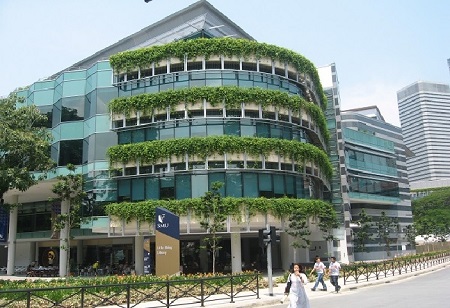Singapore Management University (SMU) has inaugurated an Urban Institute aimed at researching challenges in Asian cities, including climate change and aging infrastructure. The institute will unite experts from diverse fields to conduct research on urban centers in Singapore and Southeast Asia. Piyush Gupta, Chairman of SMU, emphasized the unprecedented challenges cities face, ranging from demographic changes due to migration to increasing demands for education and employment access. The new institute will serve as a focal point for collaboration among urban planners, designers, economists, social scientists, and policymakers to collectively seek solutions.
The research generated will not only cater to academia but also serve the needs of industry and policymakers, as mentioned by Piyush Gupta. The Urban Institute will concentrate on three key research areas. The urban life aspect will investigate factors contributing to a city's livability and how place-making can enhance diversity and vibrancy. In the urban growth domain, the focus will be on developing strategies for fair access to urban services, including housing and employment opportunities. Within the urban infrastructure sector, researchers will explore the impact of both hard infrastructure materials and soft factors such as social or regulatory constraints on urban development. Additionally, the institute plans to establish partnerships with global universities and think tanks specializing in city studies.
During the event, Senior Minister of State for National Development and Foreign Affairs, Sim Ann, highlighted the institute's crucial role in facilitating the exchange of experiences and research collaboration between Singapore and neighboring regions. She emphasized its significance in aiding policymakers and practitioners in enhancing the built environment. Orlando Woods, the Urban Institute's head and SMU Associate Professor of Geography, expressed the hope that the institute would amplify its impact on government stakeholders and partner cities in Southeast Asia through the development of its three primary pillars. He underscored SMU's distinctive perspective as a social science and humanities university in addressing urban city challenges. The institute is also in discussions to establish research partnerships with institutions in Toronto and Melbourne.

